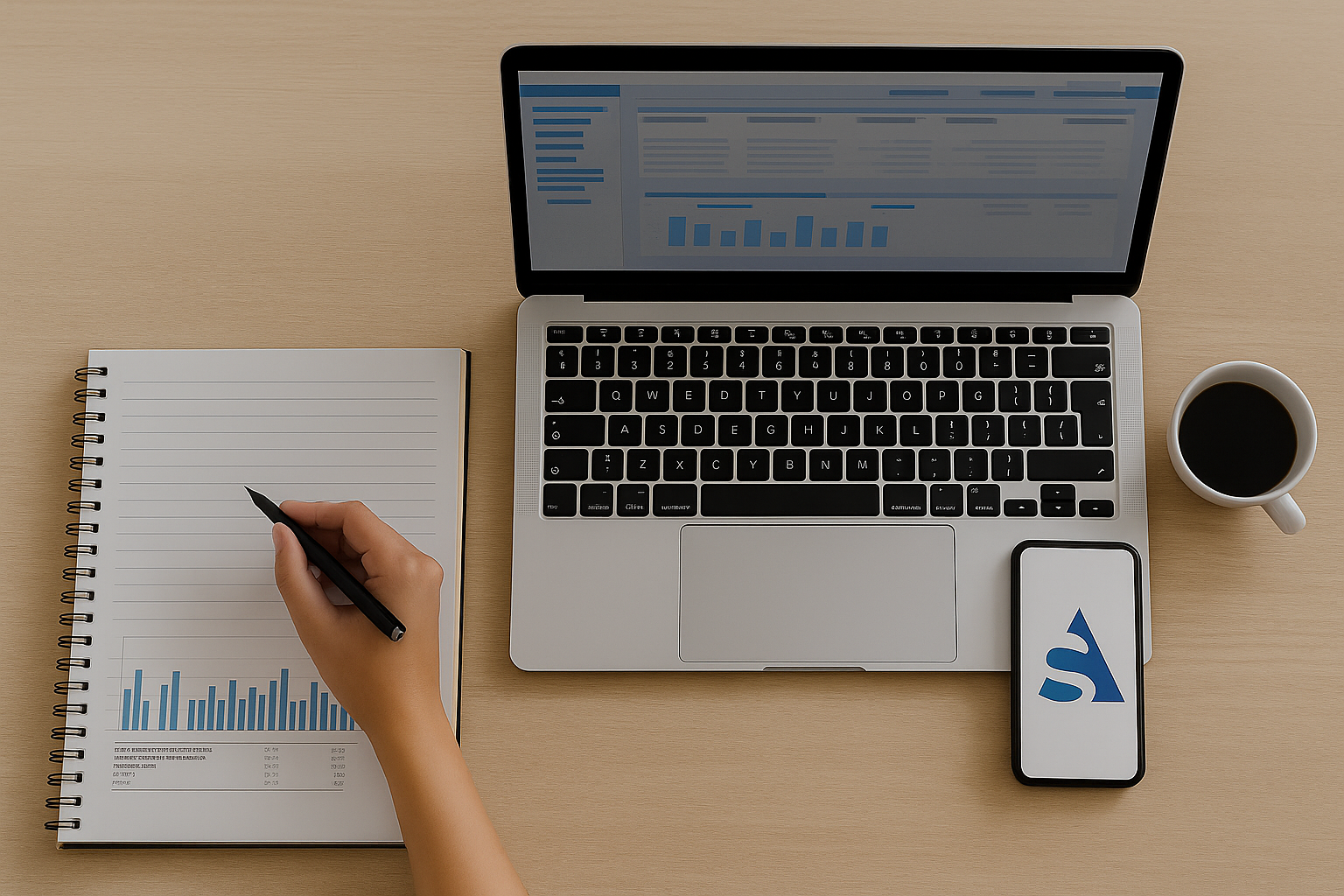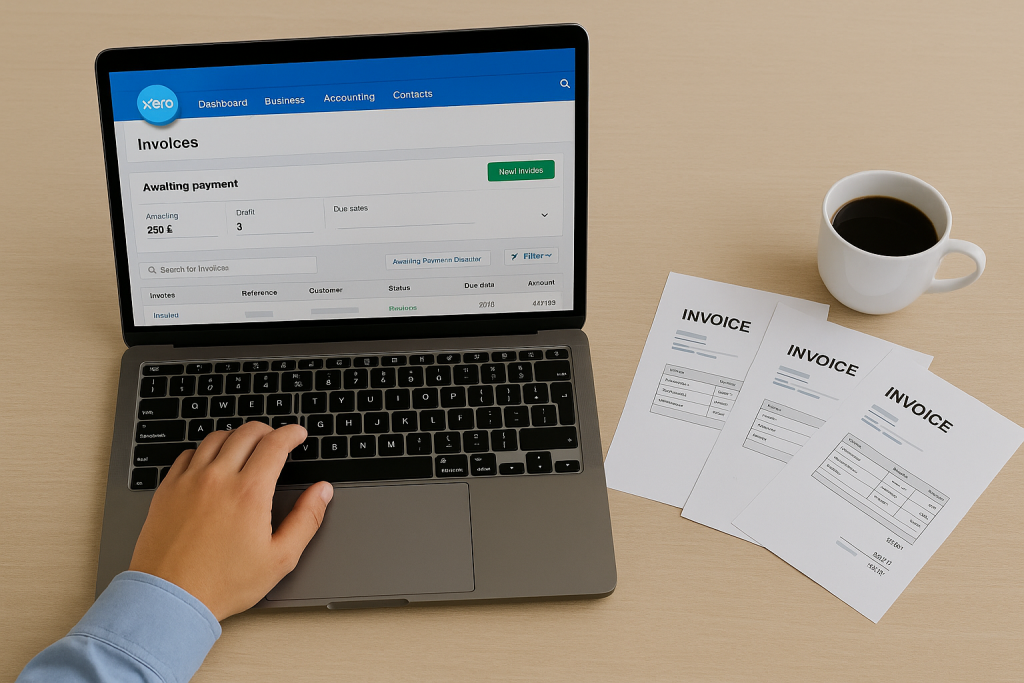Sussex: 01903 201940
Surrey: 01737 847779

If you’ve ever wondered whether you need a bookkeeper or an accountant, you’re not alone.
Across Sussex and Surrey, many business owners use the two terms interchangeably. While both roles support your finances, they focus on different areas of your business — one keeps things running daily, the other helps you stay compliant and plan ahead.
At Smart Accountants Sussex & Surrey, we make it simple by offering both bookkeeping and accounting services under one roof — helping local businesses stay organised, compliant, and confident.
Here’s how these two financial roles complement each other and keep your business running smoothly.

A bookkeeper manages the daily side of your finances — recording every sale, purchase, and payment to keep your accounts accurate and compliant with HMRC rules.
Their work focuses on precision and organisation, typically including:
Recording daily transactions
Reconciling bank statements
Managing supplier bills and customer invoices
Organising receipts
Preparing VAT returns
Handling payroll
Ensuring records meet Making Tax Digital (MTD) requirements
Most modern professionals use cloud software such as Xero to keep your finances secure, efficient, and paper-free.
In short, your financial records stay clear and compliant — freeing you to focus on running the business.
An accountant takes those organised records and turns them into insight. They prepare financial statements, manage taxes, and help you meet deadlines — but also advise on strategy and planning for growth.
Their role often includes:
Preparing annual accounts and tax returns
Filing self-assessment or corporation tax
Advising on business structure and tax planning
Supporting MTD for Income Tax (MTD ITSA)
Managing payroll, pensions, and compliance deadlines
You can read more about MTD on our Making Tax Digital page.
Working with an ACCA-qualified professional ensures your systems, reporting, and MTD compliance meet HMRC and professional standards year-round.


|
Bookkeeper |
|
Handles daily financial records |
|
Focuses on accuracy |
|
Works throughout the year |
|
Supports MTD record-keeping |
|
Accountant |
|
Analyses and interprets the results |
|
Focuses on compliance and strategy |
|
Works at key financial points |
|
Manages reporting and tax compliance |
Both are important, but they serve different purposes.
Not always — and not necessarily at the same time.
Many small businesses in Sussex and Surrey start out by using an accountant for their year-end accounts and compliance while handling basic record-keeping themselves. As the business grows, bringing in additional financial support helps manage the day-to-day finances, leaving the accountant free to focus on advice, planning, and compliance.
It’s not about choosing one or the other. It’s about finding the right level of financial support at each stage of your journey.
If you’re unsure what’s best for your business, our services page explains how we support clients at every stage — from start-ups to established companies.

Gone are the days of paper ledgers and boxes of receipts.
Modern accounting is fully digital, driven by platforms like Xero, QuickBooks, and FreeAgent.
Cloud software makes collaboration easy — you, your bookkeeper, and your accountant can all work from the same data in real time. It also keeps everything compliant with Making Tax Digital on HMRC and helps ensure your submissions are accurate and on time.
This digital-first approach is now the standard for businesses across Sussex and Surrey, from family-run shops to growing companies moving their accounts online.
Working with an ACCA-qualified accountant helps ensure that your systems, reporting, and Making Tax Digital compliance meet HMRC expectations year-round.
Think of your business finances like a car:
Both roles make sure your business stays in motion, just in different ways.
If you’d like help keeping your finances on track, you can get in touch with our team for friendly, practical advice.
Both essential to a strong financial foundation — one ensures accuracy, the other ensures compliance and strategic growth.
Whether you’re based in Worthing, Dorking, or anywhere else across Sussex and Surrey, understanding the difference helps you choose the right level of support.
With the right mix of tools like Xero and professional guidance, you’ll stay organised, compliant, and confident — wherever your business takes you.
If you’re ready to streamline your accounts or just need some honest advice, contact us today — we’re here to help.
A bookkeeper keeps day-to-day records accurate and up to date. An accountant uses that information to prepare reports, handle tax obligations, and advise on planning and compliance.
Not always. Many start with a tax professional for filings and compliance, then add day-to-day record support as things grow.
Xero is a popular cloud tool—easy to use, collaborative, and MTD-ready. It helps your team keep records tidy and submissions accurate.
MTD requires digital records and compatible submissions. Keeping data organised through the year makes filings smoother and reduces last-minute stress. See HMRC’s MTD overview for details.
We support clients across Sussex and Surrey (including Worthing and Dorking) and can work remotely with UK businesses.
Reconcile regularly, keep digital records, and track deadlines. Using Xero and working with an ACCA-qualified adviser helps you stay on top of requirements.
Yes — we look after everything from day-to-day record keeping, payroll, and VAT, through to year-end reporting, tax submissions, and business planning. Our joined-up approach keeps your figures accurate and your compliance effortless.